Premium Only Content
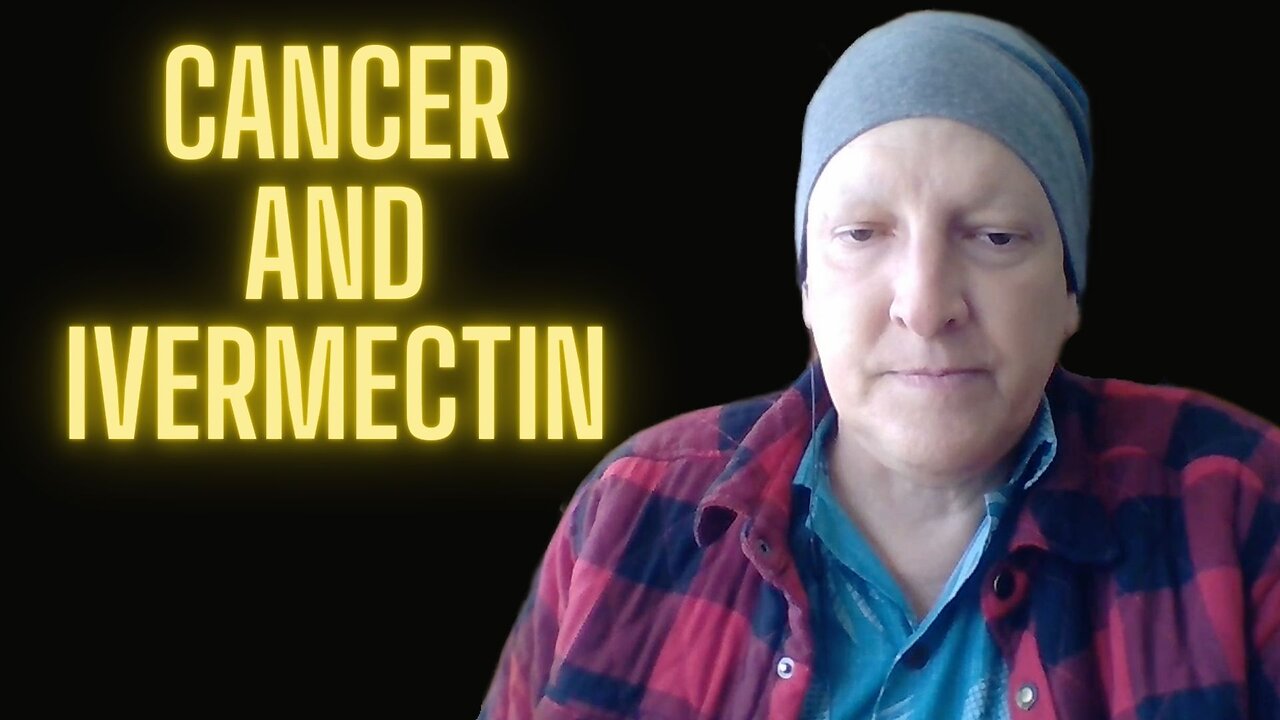
127. Paul Mann, More on Ivermectin and Cancer
Today I talk with Paul Mann. He was barely able to make it day to day due his cancer. Hear his story and what may have helped him get to the point where he is now winning over the cancer.
If you like my t-shirt please get one here:
If you would like to purchase better than grass fed and grass finished beef that will never get mRNA injections, never get growth hormones and never get antibiotics check out mycleanbeef.com/afterhours
As always please like, share and follow.
Please check out my Patreon account (https://www.patreon.com/Afterhourswithdrsigoloff).
This is mostly to help with the legal fees. Please consider contributing but if you are unable to donate money please give prayers.
truthforhealth.org for COVID illness and long haulers syndrome treatment protocols. If you have a vaccine injury (from any vaccine or have any injury that you think may have any relation to any vaccine) please report in their civilian equivalent to VAERS.
Patreon: https://www.patreon.com/Afterhourswithdrsigoloff
Email: afterhours@1791.com
Instagram: @afterhourswithdrsigoloff
Clouthub: @DrSigoloff
TruthSocial: @DrSigoloff
Rumble: https://rumble.com/c/AfterHoursWithDrSigoloff
Youtube: https://www.youtube.com/channel/UCQ_ng3WYVhnctCYq6Rom07g
Givesendgo: https://www.givesendgo.com/G37EN
127. Paul Mann, More on Ivermectin and Cancer
===
Paul Mann: [00:00:00] And after you finish your radiation, after you finish your chemo infusions, You're kind of just set free. You know, they've done what they can for you. They can't do anything else except monitor you and your treatments are kind of over. It really feels like you've been in the ocean with a life vest on bobbing around and someone comes by on a boat and they take your life vest but they leave you and they just take off.
Paul Mann: That's kind of how it feels. At the moment, right now, no one knows how much ivermectin to take, and no one knows how often to take it. Because of Dr. Ruddy, I'm the first human to purposely take ivermectin, uh, for cov for, uh, cancer.
Dr. Sam Sigoloff: Doesn't dinner sound great as it's cooking? This dinner is from Riverbend Ranch, which always provides prime or high choice.
Dr. Sam Sigoloff: [00:01:00] Antibiotics has never been given hormones, never been given antibiotics, never been given mRNA vaccines. It's raised in the USA. It's processed in the USA. In fact, it's fully vertically integrated, which means that they own the cow that gives birth to the calf. It's raised on their fields and then taken to their butcher and then shipped to you.
Dr. Sam Sigoloff: And if we compare to What we can buy from Riverbend Ranch to four other major state companies that sell bundles that have ribeyes and other meat in it. It can be as much as 184 to 59 less expensive. It's a great price value and it's a delicious piece of meat. Check out MyCleanbeef.com/after hours.
Dr. Sam Sigoloff: That's mycleanbeef.com/afterhours, mycleanbeef.com/afterhours.
Nurse Kelly: Welcome to After Hours with Dr. Sigoloff. On this podcast, you will be encouraged to question everything
Nurse Kelly: and to have the courage to stand for the truth.
Nurse Kelly: And now to your host, Dr. Sigoloff.
Dr. Sam Sigoloff: Well, thank you for joining me again. I first want to give a shout out to all my patron supporters. We've got two tough giving 30 a month. We've got an anonymous family donating 20 and 20 cents a month. We have the pandemic reprimando giving 17 and 76 cents a month with Ty Charles tinfoil, Stanley, Dr.
Dr. Sam Sigoloff: Anna. Frank, Brian, Shell, Brantley, Gary, and Sharon. We have 10 a month [00:03:00] with Kevin and Patton Bev. We have The Refined not burned at 5 a month with Linda, Emmy, Joe, PJ, Rebecca, Mark, I'm sorry, Marcus, Elizabeth, Don, and Joe. Ken, Mary, and Amanda. We have Addison Mulder giving 3 a month, and Frank giving 1. 50. And then we have Courageous Contagious tier at 1 a month with Jay, SpessNasty, Darrell, Susan, uh, Suzanne, B.
Dr. Sam Sigoloff: B. King, and Caleb. Be sure and check out MyCleanBeef. com slash After Hours. That's MyCleanBeef. com slash After Hours to get some of the best beef that I've personally ever tasted. And we'll learn more about ways of eating when we talk to our next guest. Paul Mann. Sir, I met you at the FLCCC conference and you were showcased as, as a, as a patient who's gone through an incredible life change.
Dr. Sam Sigoloff: And, and if anybody's interested in learning more about this, go back and listen to episode 123 that I did with Dr. Ruddy. Paul, thank you so [00:04:00] much for coming on and telling us your story. So thank you for inviting me. So tell me when all this started for you, what you were diagnosed with, what you're, what you understood that to mean, and then how you got hooked up with Dr.
Dr. Sam Sigoloff: Ruddy.
Paul Mann: Right. And in early, for the first couple of months of 2022, I had some severe sciatica pains and I thought it was just sciatica. I thought it would just go away. So, but eventually the pain just became so overwhelming and so just. excruciating. I was forced to see a doctor. I saw a doctor that specializes in sciatica.
Paul Mann: He took an x ray and then he immediately said, I'm going to send you over to get a metro imaging. It's a chain of M. R. I. Facilities here in the ST Louis area. And he's like, I want to send you over there. They're going to do you give you an M. R. I. [00:05:00] Immediately. And then you come back at the time. I didn't realize how unusual that was.
Paul Mann: They're usually booked up mhm. Weeks and weeks, maybe months in advance. So just showing up and getting an MRI on the spot is kind of unheard of, but I didn't know that at the time. So it really didn't ring any alarms for me. Went back to his office and I guess they had, he had spoken to them on the phone already.
Paul Mann: And this was June 4th or June 2nd of 22. And As soon as I showed back up in his office, he's like, you, you need to go to wash you emergency room right now, take your desk and, and tell them, you know, what's going on and give you, give them this, this image disc. So I went to wash you the next day, June 3rd, uh, they saw me pretty quick actually for emergency rooms.
Paul Mann: And, uh, They ended up [00:06:00] keeping me about two and a half weeks. I was diagnosed with stage four prostate cancer and from the very beginning it had already, it was across my pelvis, up my spine, across most of the ribs, in the sternum, a little bit in the right arm, the right leg, and a few spots in my skull.
Paul Mann: They immediately started that day. One of the doctors told me you are well beyond any kind of surgery and the next day they started radiation treatments. They started hormone treatments and then a week later they started chemo treatments. I had 6 chemo treatments total and 12 radiation treatments, 10 to my right.
Paul Mann: pelvis and two to my sternum. And at the, at the last, uh, [00:07:00] chemotherapy session infusion before, before the infusion, I was in the exam room and I was talking to the doctor. I knew a little bit about what was going to go on, but not quite. And I asked him, I was like, okay, we get the last chemo infusion. We wait six to eight weeks.
Paul Mann: Get another scan to see what's going on. If I still have cancer in me, do I get more chemo? What do we do? I thought chemo was the cure. And, uh, the doctor looked at me and he's like, this isn't curative. And I was just thinking, sitting there thinking to myself, well, if it isn't curative, why did we do this?
Paul Mann: I was thinking that, but I didn't say it. I was just kind of mind locked and numb, and either he's had enough experience with other people, or he could read my expression, but he was like, you know, we're only doing this to improve the quality of life here at the end, end of your life, [00:08:00] and I said something about the, uh, I was thinking, Okay, man.
Paul Mann: Because I'd get chemo on Thursday, by Friday afternoon I'd start throwing up, and I'd throw up continuously until about Monday morning sometime. And when I say continuously, I mean continuously. You would think that you would run out of things to come out of you, but you do not. I wouldn't even have time to stand up before I'd have to throw up again.
Paul Mann: I just sat in front of the toilet, leaned over for three and a half days straight, couldn't sleep because you're throwing up continuously. And I was thinking to myself, this really isn't an improvement in the quality of life. I don't understand. And I said something about the future. And, uh, he's like, you're only your only long term goal is to make it to your next visit, which was a week away.
Paul Mann: And I asked him, am I, [00:09:00] am I living week to week? And he's like, no, you're squeaking by day to day. I'm trying to get you to week to week. And I was like, that was the first time I kind of realized that. And I was like, well, that's not good. And he goes, no, it's not a good position to be in at all. And he's like, at some point, one or more of your organs is going to have too much cancer in it to continue functioning.
Paul Mann: And you're going to have a series of organ failures. And I was like, well, that doesn't sound fun. And he's like, no, that's not fun at all. And he's like, but we have some medications where you won't feel most of that pain. And I was thinking the word most isn't the same as the word all and I was like well that's not good and he's like it's really not.
Paul Mann: So that was the kind of end of that meeting and I went on to have my last infusion right after that. And after you finish your radiation, after you finish your chemo infusions, you're You're kind [00:10:00] of just set free. You know, they've done what they can for you. They can't do anything else except monitor you and your treatments are kind of over and it really feels like you're been in the ocean with a life vest on bobbing around and someone comes by on a boat and they take your life vest but they leave you and they just take off.
Paul Mann: That's kind of how it feels and I was very distraught. Very felt very like, you know, abandoned and, uh, I worked for the federal government. I've worked for the federal government for about 28 years and it's a tight knit. There's a lot of people in this agency, but it's a tight knit community. So worried about me kind of spread around.
Paul Mann: And even people out on in the East Coast, they're like, did you hear what happened to Paul? Have you heard what happened, what Paul's going through? And one of these [00:11:00] people, she, I'd never met her before, but she sent me an email through work. And she's like, Hey, I know someone who's an oncologist. I can see if she'll answer some questions.
Paul Mann: If you, if you have any to ask, and I did, I had several questions to ask and I sent her an email back. Yes, I have, I have lots of questions and the person she's talking about is Dr. Ready and she got, she told Dr. Ready about me and gave Dr. Ready my phone number. And, uh, sometime this is probably. November of 22 on a Sunday evening, Dr.
Paul Mann: Reddy called me and spoke to me for about two and a half, three hours just on her own time. And we've spoken once a week ever since. But, you know, she's like, okay, what were [00:12:00] you diagnosed with? What have they treated? How have they treated you? You know, she got all that information first and then she's like, I was, if you have any questions, you know, and my first questions were like, why can't I get more chemo?
Paul Mann: Why can't I get more radiation? Why can't I get more, you know, and the answers to that is basically, uh, at some point, because I asked, you know, some people get chemotherapy for like a year to multiple years. Some people get like 40 or 50 radiation treatments. Why can't I? And when it comes to the chemotherapy, people who get the chemotherapy for years are usually getting a reduced dosage spread out over a long period of time, versus that for me, they just went straight to the maximum right off the bat.
Paul Mann: which is good and bad. It's good that [00:13:00] they treated it that aggressively. It's a bad sign that they thought they had to treat it that aggressively from the beginning. But the answer to why I couldn't have more chemotherapy is that at some point, your body just reaches a toxicity limit and you just can't have any more.
Paul Mann: Any more chemo would literally kill you and that's just the way that is. The same with the radiation treatments. I had cancer or have cancer throughout my entire body. So they just can't radiate your entire body. So they pick and choose certain areas that are either life threatening or causing extreme agonizing pain.
Paul Mann: And the pain is why they, they treated my right pelvis and the life threatening is why they treated my sternum. And That those were the dosages to treat to treat those two spots for for [00:14:00] those what was what they were doing at first. You know, we talked a lot about this the 1st phone call the next week doctor ready started at start suggesting things like a change of diet.
Paul Mann: I've changed my diet. She she suggested a few things to to. add or to try. And then maybe by December of 22, Dr. Ruddy was like, it looks like in trials with, with animals. And it looks like maybe some people who were taking ivermectin for different reasons that they might've had a good reaction with their cancer.
Paul Mann: And she's like, you have nothing to lose. You're at the end of the rope. You have nothing to lose. You should try to get some ivermectin and see what it does. If it doesn't do anything for you, whatever's going to happen is going to [00:15:00] happen anyway, but it might just do something. I, she thought it would, and it appears that it did.
Paul Mann: It appears that so far it has extended my life, maybe a year past when they thought I was going to die. And I think things right now, things appear to be getting better. Uh, we'll find out for sure. June, uh, 17 of 24, in about two months, I get my next round of full scans and we'll know the exact what's going on at that moment.
Dr. Sam Sigoloff: So you had your last treatment and then after that last treatment is when you got connected to Dr. Ruddy and After sometime after that is when you began the ivermectin and so, because, because I mean, people might say, oh, well, maybe it's working. Maybe the, the, um, the chemotherapy is working, but they stopped it because it wasn't working.
Paul Mann: [00:16:00] Correct. They stopped it because it wasn't working. Uh, the doctor told me this was not curative. He told me that. Uh, he told me I was completely full of very advanced, very aggressive cancer. There is no curative. We're only doing this to improve your quality of life. So they had finished. I had reached my toxicity limit with that.
Paul Mann: It wasn't curative, it wasn't going to be curative, and they kind of set me free, and that's a month or so later is when I got in contact with Dr. Reddy.
Dr. Sam Sigoloff: Wow. What kind of dietary changes, um, have you done to help your situation?
Paul Mann: There's a very good book, I don't remember the author, but the name of the book is How Not to Die.
Paul Mann: It's a thicker book. The last half of [00:17:00] the book is all citations and, and references. And the first half of the book is every type of cancer he, he talks about has its own specific little chapter. Each chapter is only four or five pages long. It covers many, many cancers, and he just kind of rounds up studies that different universities or hospitals have done regarding dietary changes and how it affects cancer.
Paul Mann: And the biggest one is sugar. If you have any kind of cancer, or if you know someone who has cancer, you gotta cut down sugar as much as possible. I talked to someone doing an MRI one time, The reason why you cut, so when you're going to do an MRI for cancer, they, they run you through without contrast and then they give you a contrast and they run you through again and [00:18:00] kind of spot things and the contrast ends up getting, getting, Absorbed by all the cancer and at, you know, you wait for an hour for it to do that.
Paul Mann: And then before they run that scan, that's a radioactive sugar solution that they give you. And the reason why they give you a sugar solution is they know that cancer, cancer cells eat sugar at something like 17 to 22 times the rate of a normal cell. Cancer cells love to eat sugar. That's a known fact.
Paul Mann: There's debate on what cancer cells are doing with that sugar. To me, it seems obvious it's doing that to power itself. But there's debate on what it's doing. But the fact is, they do know it eats sugar at that grade of a rate more than a normal cell. And the book reads, and I just figured, you know, If cancer is doing that, I don't want it to [00:19:00] do that.
Paul Mann: So, the biggest dietary changes I reduce, I eat nothing with added sugar at all. I try to stick with things with zero sugar. Sometimes I'll eat things with, I'll go up to two grams. nothing more than two grams. So at the beginning, it's kind of hard because it takes a long time to go to the grocery store and you have to look at the labels of everything.
Paul Mann: You're like, okay, well, this one has four grams. Let me see if I can find one. You go, okay, well, this one has two grams. So I just dropped my sugar for this item in half. And he, and, Once you go to the store once or twice, you know, which products to buy and it makes it easy, but at the beginning, it's hard. It takes a lot of effort and a lot of time to figure out how to cut out sugar, but you know, no chocolate, no candies.
Paul Mann: No, these are, these are things you just got to stop. You got to stop.
Dr. Sam Sigoloff: And,
Paul Mann: and kind of,
Dr. Sam Sigoloff: kind of [00:20:00] another useful guy that you can use is if it's If it's an animal product, if it's a, you know, beef, chicken, eggs, then it doesn't have sugar in it and you can eat as much of that as you could possibly want.
Paul Mann: Correct. So I eat a lot of meat and a lot of vegetables. And, uh, that's pretty much my diet and I'm doing just fine. Uh, some people have told me, you know, like, you have a really strong will not eating sugar, but I just look at things with sugar and go, do I really want to feed cancer? The cancer that's killing me and my, my response is always, no, I don't want to feed the cancer that's killing me.
Paul Mann: So going without sugar is no problem with me so far. It's literally a life or death decision, whether you want to eat, in my opinion, if you want to eat sugar or not.
Dr. Sam Sigoloff: No, that's, that is the absolute truth is cancer loves sugar. And, and you are faced with an amazing choice. Do I feed the cancer and my sweet tooth and my addiction to sugar, or do I not and [00:21:00] have better quality of life and have a life that you wouldn't have otherwise?
Dr. Sam Sigoloff: It's, it's incredible choice that you're faced with and I'm glad you're, you're picking the right thing.
Paul Mann: So it was the, the no sugar, uh, I added ground flax seed that's supposed to help reduce your, your testosterone, which helps reduce the PSA number, which for me, prostate cancer feeds off of testosterone as well.
Paul Mann: So, uh, That time when I went into the emergency room that first time, my PSA level was in the eight hundreds. It's supposed to be like five or six, five or six is kind of a high number. Actually, it's supposed to be a little bit lower than that. But as you age, it creeps up. The line was well into the eight hundreds to the point that the one doctor is like, we know it's prostate cancer.
Paul Mann: We really can't tell you that until the biopsies come back. But we know that's what it is. And we're treating you for prostate [00:22:00] cancer right now. Even though the biopsies hadn't even been done yet, the PSA number was just so high and everything else was leading that they just already knew what it was.
Dr. Sam Sigoloff: So after treatment, do you remember what your PSA number was after your last chemotherapy treatment?
Paul Mann: After my last chemotherapy, and they'd been giving me hormone shots to drive down the testosterone, which feeds the prostate, uh, during that time period. They were able to drive my, uh, PSA down into like the four or five range, and currently it's sitting at 0.02.
Paul Mann: It's say 0.0.
Dr. Sam Sigoloff: When you say four or five, you mean four or 500, or four or five. The number itself, four or five. It had gone from like 830
Paul Mann: down to four, four and a half, something like that, and it's currently at 0.02. Wow. [00:23:00] And the doctor said their goal was to get under 0.2, and I'm at 0.02. Wow. So, through my diet and through their hormones and all that, I've really done a good job at almost getting to zero.
Dr. Sam Sigoloff: And at what point did you start the Ivermectin? At what point was the PSA when you started it and after?
Paul Mann: By the, when I started the, the Ivermectin, uh, my PSA was probably a five or six and started the ivermectin. For me, it's almost impossible to get ivermectin here in Missouri. It's really hard to find a doctor that would even, that'll even talk about ivermectin, let alone prescribe.
Paul Mann: And it's really hard to find a pharmacy that would give, you know, If you took it to Walmart, they definitely won't hand it out. If you take it to a Walgreens or CVS, they're not going to, you have to go to like a [00:24:00] compounding pharmacy. It's probably easier in Missouri to buy heroin than it is ivermectin.
Paul Mann: Wow. But in, uh, that's the truth. That's the truth. And you probably get more trouble for buying ivermectin than you do heroin. That's probably the truth as well. But in Tennessee, which is about four and a half hour drive one way for me, you can get it. It's this weird kind of over the counter. You don't need a doctor's prescription, but the pharmacist can prescribe it.
Paul Mann: And It was a compounding pharmacy about four and a half hours away. They sell it as a propylactic for COVID. So they sell it based on your weight. And they sell it at enough quantity that you can take like two pills a week for 90 days as a propylactic against COVID. I needed a whole lot more than that.[00:25:00]
Paul Mann: And, uh, so I had a friend who also would get ivermectin, and then I would just pay for both prescriptions, and that would give me four pills for 90 days, but I was still kind of breaking them up to make them stretch for the entire,
Dr. Sam Sigoloff: you know. What dosage, were those the three milligram tablets?
Paul Mann: Uh, they were capsules.
Paul Mann: Okay, so I'm not quite sure they're based on. I just gave him a weight of 170, but, uh, now I was at that FLCCC conference there in Phoenix, Arizona, and a lot of people kept telling me about, uh, buying it through India Mart. So I just. Received a, a huge order I'd order like a thousand pill, 1,012 milligram pills, and I received them.
Paul Mann: So my plan is to take two of those a day, that'll be 24 gram milligrams. [00:26:00] So I'll take 24 milligrams a day and that, that shipment should last me 500 days. So for the next year and a half or so, I'm set for ivermectin 'cause it was costing me. You know, 100 a prescription for 90 days in Tennessee, and I got the 1, 000 pills for about 120, 130 through India Mart, and at the time, I was talking to Dr.
Paul Mann: Merrick, and I was like, I was kind of worried about if they're legit pills through India or not, and he's like, ivermectin is so cheap. It would be more expensive to sell you fake stuff, fake pills than real pills. They're, they're, they're just fine. So that's, that's my plan out. And that's part of the study at the time at the moment right now, no one knows how much ivermectin to take and no one knows how often to take it.[00:27:00]
Paul Mann: This is, it's just kind of the, I'm like, I guess because of Dr. Ruddy, I'm the first human to purposely take ivermectin. for COVID, for cancer. And she, she was suggesting about 20 milligrams or so. Uh, the way I was dividing pills, I was probably, I was, I know I was under that. I just don't know how much under that, but now since I'm, I have these 12 milligram pills, I can more, more, you know, confidently take the same amount every single day in a known quantity.
Paul Mann: So that's part of Dr. Merricks. He just got approved for his studies and that'll be part of his studies is how much and how often.
Dr. Sam Sigoloff: Yeah, that's something we really need to know, you know, would 12 milligrams be just as good as 30 or is there a sweet spot where you go more and it's less of it? We don't, yeah, that's something that hopefully Dr.
Dr. Sam Sigoloff: Merck can figure out. No one
Paul Mann: knows. Right. No [00:28:00] one knows yet. Hopefully people have the same results. I've, I've seemed to have with Ivermectin, uh, like at the FLCCC conference, you know, Dr. Ruddy, he said, you know, she said, let me make it clear. When I first came in contact with Paul, he was circling the drain and now he's not.
Paul Mann: So that was her, her quote.
Dr. Sam Sigoloff: Yeah. I remember that. It just shocked me to the core and then to see you standing there.
Paul Mann: And now. Despite everything, you know, I'm last I know based on my last scans, which were about nine months ago, you know, I still have cancer in quite a few places, but I, I'm doing much better. Everyone I know tells me I'm looking better. Uh, at the time I started taking ivermectin, I w I was gray. I might look great in the light now, [00:29:00] but in person, I look a little more pinkish and, but I was, I looked gray, like concrete color and I'd lost a lot of weight.
Paul Mann: At one time I was in hospice. They thought I was going to die. I thought I was going to die. They had a minister come in to talk to me about dying and, and, you know, if I was ready to meet my maker and I just kept waking up and I kind of got better and they kind of released me from hospice. And I remember I told the nurse one time that maybe I was too dumb to die.
Paul Mann: You know, I was like, maybe I don't know how to die. I just keep waking up every day and here I am. And she's like, oh, no, you're, you're a good fighter. You're doing real good. And I was like, I don't really think I'm a fighter. I'm just taking a ride. Like I'm on a roller coaster, but I don't know. Here I am.
Paul Mann: And despite everything, With all the changes to diet, with [00:30:00] the ivermectin, with all the other things, I'm living the best life I've lived in years, so.
Dr. Sam Sigoloff: And what is the personal side of it look like to you, if you're willing to get into some of that, like, how has it changed your daily routine? How is it, you know, do you appreciate things differently?
Paul Mann: I do appreciate things quite a bit more. I don't let little things get to me. And I don't get let most of the big things get to me too. You know, people, I hear people complain about this or that or whatever. And you're like, that's really not. In the grand scheme of things, whatever you're complaining about, you know, I was basically on death's door to the point where they brought a minister in to talk to me about meeting God.
Paul Mann: So if someone's driving a little slower in front of me in the highway, that's not a big deal. Or if I spill something, that's really not a big deal. [00:31:00] It just, I'm kind of like a cat now. Nothing seems to bother me, I guess.
Paul Mann: That's wonderful. Yeah, you just gotta appreciate life a little bit more. Don't let things get to you. You know, it's, it's, it ain't nothing but a thing. It'll pass. Whatever your problem is, it'll pass. There are, there are people with a whole lot worse problems. No matter how bad your problem is, there are people with even worse problems that are cheerfully living through their day.
Paul Mann: And, you know, Just use them as an example and just try to have a cheerful heart.
Dr. Sam Sigoloff: Are spiritual things important to you? They are now.
Paul Mann: Uh, you know, I grew up. Went to church, but then like, you know, I got, I got married and had kids and kind of fell out [00:32:00] of it and all for quite a while. And then maybe in about December of 22, I just, I just, one morning I was just like, I need to start going back to church.
Paul Mann: And within a week, I have this long term friend, we got hired at the agency at the same time, but then he went his own way. And we kind of, we would cross paths every 10, 15 years or whatever. And uh, we would just pick up like we saw each other yesterday. And within a few days of me deciding, you know, I want to go back to church.
Paul Mann: This guy I knew from Rob, he just kind of connected in my life again, just kind of happenstance. And he's like, Hey, I go to this church real close to you. Do you want to go? And I was like, I do. So, you know, it just kind of fell in my lap of, and, uh, it's been a great family for me and a great support group.[00:33:00]
Paul Mann: And, you know, I enjoy going, I really like going.
Dr. Sam Sigoloff: That's wonderful.
Dr. Sam Sigoloff: Is there anything else that you want to leave us
Paul Mann: with?
Paul Mann: Uh, you know, just don't give up. I had a tattoo put on my arm that said, I won't give up. I won't give in. And you know, some days are really hard. Some days are hard, but
you know,
Paul Mann: a little bit easier. I, I still doing things is still rather painful. But I get up and do them at work. They gave me the option, like, we can find something for you to do from home.
Paul Mann: If you would, if you'd rather work from home, I was like, no, I think working from home would be the end of me going to work. It gives me a reason to get up, gives me a reason [00:34:00] to take a shower in the morning, you know, I go to work, I take part in meetings, I contribute. Uh, I interact with people in the office and I think to the best of your ability.
Paul Mann: Keep doing what you were doing. It might be more painful. It might take you longer to do those things, but don't, don't let cancer take things away from you. Just keep doing what you were doing, how you were doing it and just keep living your life and don't give up and don't give in. Just keep plugging along the best you can and have a good, I think that helps with your attitude.
Paul Mann: Interacting with people helps, and I think overall, you know, continuing to live your life pretty much as close to the way you were before, I think has a lot to do with your health. I think your [00:35:00] attitude and your spirit have a lot to do with it. Absolutely. 100%.
Paul Mann: You know, if you think you're going to die and you think this is the end, you're probably going to figure out somehow to make that happen. And if you think, nope, you know, I've got plans for next week. I'm going to do those. I got plans next month. I'm going to do those. You just seem to, you know, stick around and make those things, those plans happen.
Dr. Sam Sigoloff: This is such an uplifting story. My best piece of advice
Paul Mann: is just don't give up.
Dr. Sam Sigoloff: Yeah.
Paul Mann: Just keep plugging forward and don't give up.
Dr. Sam Sigoloff: It's so uplifting to hear you. You talk about this and how you're going through the thick of it and you still are looking up. I think that's wonderful.
Dr. Sam Sigoloff: And I will say that [00:36:00] when I saw you at the FLCCC conference, I would never have believed that, that you had hospice called, that you had, um, you know, had stage four cancer because you don't look like it. You can usually, as you mentioned, you look great before, but you didn't look great when I saw you. And you can usually tell when people.
Dr. Sam Sigoloff: Have that kind of medical illness going on?
Paul Mann: Uh, before I started the ivermectin, before I started some at the end, some of my friends since here recently have told me you looked terrible at one time. We were really worried, you know, that you weren't going to last much longer. Now you look, you look great. Yeah. Most people would not know, or, or guess when they look at me now,
Dr. Sam Sigoloff: so, well, Paul,
Paul Mann: it's all, yeah, the attitude, the ivermectin, the change of diet. It's all, I kind of think [00:37:00] it's, it all works together. You take traditional medicine, you do your alternative medicines, you do your, your dietary changes. You got to work at it just as much as the doctors work at it. And I think it all works together as one.
Paul Mann: So just try everything.
Dr. Sam Sigoloff: Absolutely. I agree. It's not just, it's just not the diseased organ. It's the patient there too. It's, it's the body, it's the mind, it's the spirit. And all of that has to be fed and taken care of. It does.
Paul Mann: And I still, attitude is a huge part of it.
Dr. Sam Sigoloff: Absolutely. And
Paul Mann: it's sad and it's depressing.
Paul Mann: And I had moments, you know, I was very distraught when, you know, my traditional treatments ended. I was very distraught at different times, but, you know, I kind of took [00:38:00] my time, got my got the air under my wings again. And, you know, so it's not all roses. You'll have up days and you'll have really bad down days, but over the span of time, things will work out.
Dr. Sam Sigoloff: Paul, thank you so much for sharing your story, for letting me be able to immortalize this on video. And, uh, I'll definitely let you know when this gets published and perhaps Oh, I'd love to. Perhaps when you're, you get those scans, if things are looking good, uh, or if they're not, and you're willing to share, uh, with, I'd love to have you back and to talk about it.
Paul Mann: Another thing I want to say, uh, tell people that's very helpful at the beginning. I only told a few people at work that would see me because they, I would show up with no hair over, you know, they would know. [00:39:00] You know, they go, where the hell's Paul all this time? He's never here. So I had to tell them what was going on and why, but I didn't tell any of my friends, didn't tell anyone.
Paul Mann: And, uh, I was, I was in the hospice ever, you know, everyone thought I was going. And then when I got, When I survived hospice, I got home. This was late December of 22. And, uh, I decided I was going to create this. I thought it was going to be just for me and kept secret. I was going to create this photo album on Facebook.
Paul Mann: To where only I could see it. I wanted it posted somehow after I die because I didn't want to die and people to not know what I had gone through. So it was like a whole lot of photos taken of me throughout the year in the hospital and hospice getting infusions. Having my hair shaved all sorts of things like [00:40:00] that, but, uh, I created this photo album thought it was just for me only saved it and went to bed and got up the next day and found that I had kind of posted it for everyone to see.
Paul Mann: Yeah, so I didn't get off Facebook for, like, another 3 days. I was just mortified. But, uh, after that. The love and support from all the friends and all the people who knew me and stuff was just overwhelming. And since that point, I just shared everything. Every time I went to for scans, every time I got scan results, every time I went for something like a spinal block or, or a treatment, I would post it, you know, and I tell people, There's a big shame of cancer patients for getting cancer.
Paul Mann: I don't know why that is, but it kind of seems to run the gamut that people [00:41:00] with cancer or have shame about it. And just let people know, and you'll be surprised on how much love and support you'll actually get from everybody. And I think that accidental sharing of all those photos was probably the best thing that happened to me in this whole thing.
Paul Mann: It was, you know, I was mortified when it happened. I could have, like, jumped off a cliff or something, but actually, in the long run, that was telling, letting people know, even if it was by accident, was the best thing that happened and it's the best thing that could have happened. So share with your friends, share with your family, and they will be, you will be surprised.
Paul Mann: I have support. You get from everybody.
Paul Mann: What a wonderful mistake that you made there.[00:42:00]
Paul Mann: And it's kind of educational for other people because all people really know is that, okay, you have cancer, you get chemo and chemo makes you throw up, but they don't really know what it's like to be laying on the radiation table when everyone leaves and they shut like a four foot thick lead door and you're stuck in there by yourself, or they don't know what it's like.
Paul Mann: Some might, you know, to be like, to wake up at three in the morning, you've been in the hospital two and a half weeks and it's just so cold that you can't go back to sleep and you're just, you know, you might get a visitor for an hour a day or something like that, and how lonely it is to be in there and, you know, people just don't understand or know a lot of these things, so.
Paul Mann: You know, I just tell them, okay, this is how this treatment goes. This is what they do. Some of it's kind of gross, but this is what happens, you know, and I think it also gives people a better understanding of what cancer patients go [00:43:00] through.
Dr. Sam Sigoloff: How can people find you if they're looking for you, if they want to give you encouragement?
Paul Mann: Uh, I'm just on Facebook, Paul Mann. I'm wearing a white shirt with a red tie, so, in my profile picture. But, I mean, I don't think there's that many Paul Manns on there, I don't know.
Dr. Sam Sigoloff: Paul, I want to thank you. Thank you so much for sharing your story and taking the time. Thank
Paul Mann: you for inviting me.
Dr. Sam Sigoloff: And, uh, I'm going to be praying for you and I hope my audience will be as well.
Paul Mann: I'm sure they will. And thank you. I want to thank everyone for their prayers and support as well.
Dr. Sam Sigoloff: Okay. God bless.
Dr. Sam Sigoloff: Thank you, Paul.
Paul Mann: Thank you.
Dr. Sam Sigoloff: Just a reminder for everyone out there, the duty uniform of the day, I'm The full armor of God, let's all make courage more contagious than fear.[00:44:00]
Dr. Sam Sigoloff: Doesn't dinner sound great as it's cooking? This dinner is from Riverbend Ranch, which always provides prime or high choice, has never been given hormones, never been given antibiotics, never been given mRNA vaccines. It's raised in the USA. It's processed in the USA. In fact, it's fully vertically integrated, which means that they own the cow, it gives birth to the calf, it's raised on their fields, and then taken to their butcher, and then shipped to you.
Dr. Sam Sigoloff: And if we compare What we can buy from Riverbend Ranch to four other major state companies that sell bundles that have ribeyes and other meat in it. It can be as much as 184 to 59 less expensive. It's a great price [00:45:00] value and it's a delicious piece of meat. Check out MyCleanBeef.com/afterhours. That's MyCleanBeef.com/afterhours.
MyCleanBeef.com/afterhours.
-
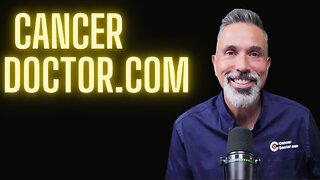 52:18
52:18
Dr. Sigoloff
9 months ago137. Cancer Doctor.com, with Robert Carrillo
2.18K11 -
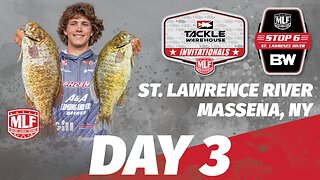 LIVE
LIVE
Major League Fishing
2 days agoLIVE Tackle Warehouse Invitationals, Stop 6, Day 3
2,742 watching -
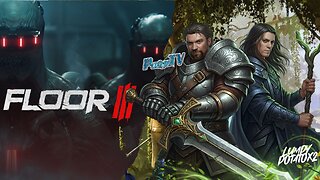 LIVE
LIVE
LumpyPotatoX2
3 hours agoKilling Floor 3 + SoulFrame: Co-op Showcase - #RumbleGaming
123 watching -
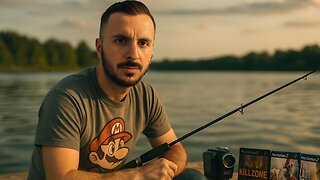 LIVE
LIVE
TheItalianCEO
3 hours agoPlaying video games on a Sunday since 1989
231 watching -
 28:43
28:43
Liberty Hangout
3 days agoAnti-Trumpers Don't Know What They're Protesting
27K179 -
![[GB]Long Stream?!?! ✨ Turtle Beach Partner !TB](https://1a-1791.com/video/fww1/20/s8/1/K/9/Z/5/K9Z5y.0kob-small-GBLong-Stream-Turtle-Beach-.jpg) LIVE
LIVE
OneRandomDolly
3 hours ago[GB]Long Stream?!?! ✨ Turtle Beach Partner !TB
214 watching -
 20:33
20:33
Sideserf Cake Studio
1 day ago $3.19 earnedI Built A Bikini Bottom Fish Tank CAKE!
22K11 -
 LIVE
LIVE
Atarithepaladin
14 hours agoPaladin Playthrough Ep 17
156 watching -
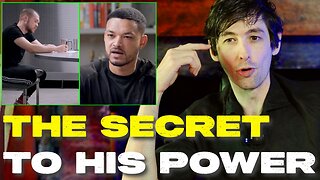 10:35
10:35
Warren Smith - Secret Scholar Society
1 day agoExposing the Illusion of Gary's Economics
57.9K11 -
 13:14
13:14
Michael Button
1 day ago $4.15 earnedThere’s a Giant Hole in Human History
26.7K23